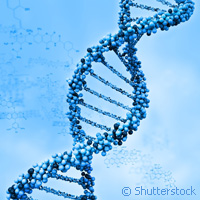A mutation that increases impulsivity
Researchers have identified a gene associated with higher levels of impulsive behaviour, particularly when alcohol has been consumed. The discovery sheds new light on the underlying causes of impulsivity and could lead to the development of novel ways of diagnosing and treating conditions characterised by impulsive behaviour. The study, funded partly by the EU, is published in the journal Nature. Impulsive behaviour, defined as action without foresight or consideration of consequences, is a hallmark of many conditions including aggression, addiction, attention deficit hyperactivity disorder (ADHD), antisocial personality disorder (ASPD) and suicide. A tendency towards impulsivity is not always a bad thing; when quick decisions are needed, or where delays can lead to missed opportunities, it can be a plus. In this study, scientists in Finland, France and the US studied Finnish criminals who had committed extremely violent crimes that were both spontaneous and without purpose. 'We conducted this study in Finland because of its unique population history and medical genetics,' explained the senior author of the paper, Dr David Goldman Goldman of the National Institute on Alcohol Abuse and Alcoholism (NIAAA), part of the US' National Institutes of Health (NIH). 'Modern Finns are descended from a relatively small number of original settlers, which has reduced the genetic complexity of diseases in that country. Studying the genetics of violent criminal offenders within Finland increased our chances of finding genes that influence impulsive behaviour.' The team compared the DNA (deoxyribonucleic acid) of 96 violent offenders with that of the same number of non-impulsive, healthy Finns. Their analyses revealed that the criminals were three times more likely than the control subjects to have a mutation in a gene called HTR2B, which codes for a serotonin receptor in the brain. Serotonin is a molecule that is involved in various behaviours including impulsivity. However, the researchers point out that the mutation alone is not enough to drive an individual to carry out impulsive acts; alcohol is a key ingredient in the mix. 'Carriers of the HTR2B variant who had committed impulsive crimes were male, and all had become violent only while drunk from alcohol, which itself leads to behavioural disinhibition,' commented Dr Goldman. The 17 violent offenders who carry the mutation had committed an average of 5 violent offences such as homicide, attempted homicide, arson, battery and assault. Some 94% of these crimes had been committed while the offender was drunk, and most consisted of disproportionate reactions to minor irritations. The crimes were not premeditated and the criminals did not benefit financially from their acts. Some members of the criminals' families also carry the gene and suffer from psychiatric illnesses such as ASPD. The newly discovered mutation appears to be unique to the Finnish population. However, the findings do have broader relevance, potentially leading to new treatments for conditions involving impulsive behaviour. It should be noted that the researchers caution that impulsivity is a complex matter involving many genetic and environmental factors. To study the gene further, the team investigated mice in which the HTR2B gene had been blocked. These animals also turned out to be highly impulsive and the team is now investigating the interaction of alcohol consumption and the gene. 'Discovery of a genetic variant which predicts impulsive behaviour under certain conditions in one human population may have much wider implications,' said NIAAA Acting Director Kennet Warren, who was not involved in the research. 'The interaction with alcohol intoxication is interesting, as is the apparent involvement of a neurotransmitter pathway that has been regarded as important in addictions and other behaviour.'For more information, please visit: National Institutes of Health (NIH):http://www.nih.gov Nature:http://www.nature.com/nature
Countries
Finland, France, United States



